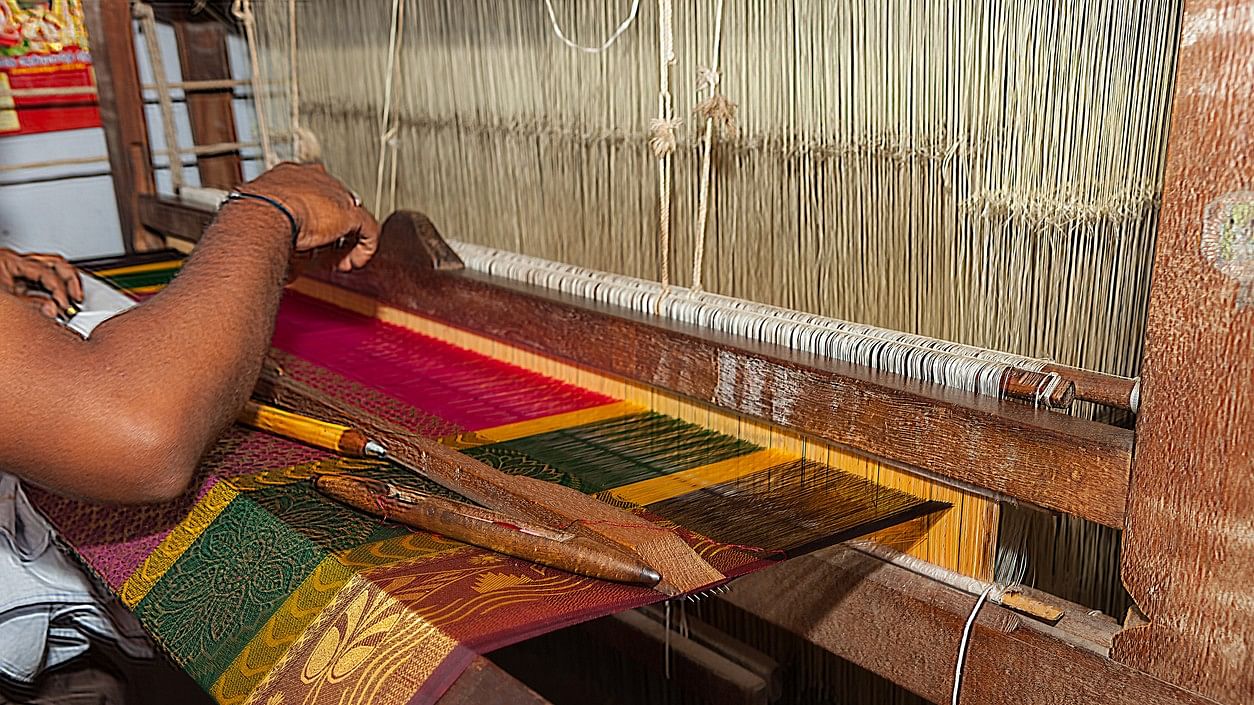
Representative image of a person weaving.
Credit: iStock Photo
Surla: When a mining ban was imposed in Goa in 2012, the women in Surla village in Chief Minister Pramod Sawant’s Sanquelim assembly constituency were the first to face its economic impact.
Surrounded by iron ore mines, the village with a population of about 4,000 saw its men become jobless after the ban. Their families faced hardships for years until the state government’s Swayampurna Goa scheme triggered an agricultural and micro-business revolution.
The scheme, launched in 2020, aims at making villages self-reliant.
Former sarpanch Vishranti Surlakar, who took up the initiative of creating awareness among the women in the village, brought them together under one roof to start a handloom centre, where traditional ‘Kunbi sarees’ are weaved.
Subraj Kanekar, the Swayampurna Mitra for Surla, ensured that the Department of Handicraft, Textile and Coir took over an abandoned school building for the project in 2020. Kanekar told PTI that the women from Surla requested him to procure machines to weave Kunbi sarees.
The department also trained the women to operate the machines. Since then, they have been weaving sarees, shawls and other Kunbi products. “There is a huge market for these products,” he said.
When he met the residents, Kanekar said he realised there was a need to revive five square kilometres of paddy fields that had been left abandoned by the men from the village who had become mining workers.
“There was a need to revive the water table to facilitate farming. During the first monsoon, we dug trenches on a hill which charged the water table,” he said.
Farmer Vishnu Natekar's cashew plantation on a hillock has become a laboratory for water harvesting under the Swayampurna Mitra scheme. “In the first year, we dug trenches which revived the water table. We dug around 1,200 trenches on the hill,” said a beaming Natekar.
Swayampurna Mitra Kanekar said the villagers did not face any water scarcity this year. “There was enough water even in the summer month of May. The experiment has worked,” he said.
Under the scheme, Santosh Maulingkar has taken to pearl farming. Maulingkar said he underwent training in Pune before taking up this project.